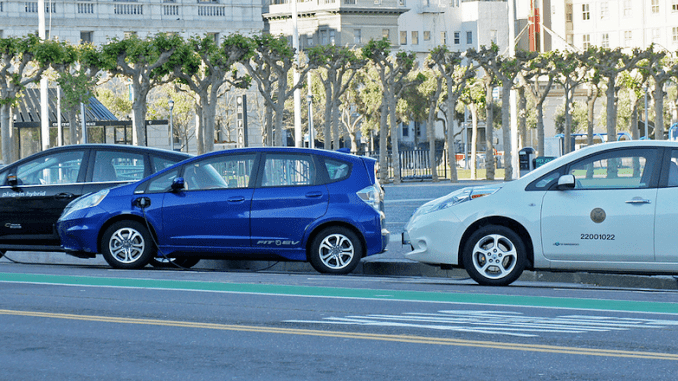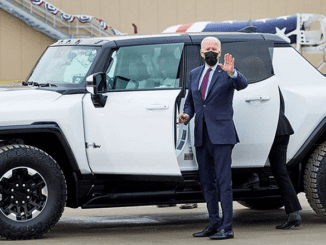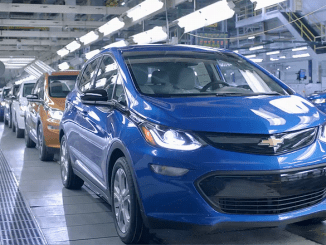
SACRAMENTO, California, February 13, 2022 (ENS) – The California Air Resources Board has awarded three grants totaling $25 million to provide innovative clean transportation solutions for disadvantaged and low-income communities in Los Angeles, San Francisco and Oakland.
The grants come from the Sustainable Transportation Equity Project, or STEP, a pilot program launched by the Board in 2020 to improve transportation equity.
STEP is part of California Climate Investments, a statewide initiative that has put billions of cap-and-trade dollars to work reducing greenhouse gas emissions, strengthening the economy, and improving public health and the environment – particularly in disadvantaged communities.
California’s cap-and-trade program aims to limit greenhouse gases, which cause climate change, by capping industry emissions and allowing businesses to buy and sell credits at auction on a state-sponsored marketplace. The money generated from those sales is then used by the state for environmental programs.
The latest funding supports clean transportation projects in low-income and disadvantaged communities, or those overburdened by pollution. Each project was chosen from competitive proposals, said the California Air Resources Board, CARB.
“This pioneering project is boosting transportation equity in communities that historically have faced higher levels of pollution,” CARB Chair Liane Randolph said.
“STEP grants, paid for by cap-and-trade dollars, will help people get where they need to go – be it the doctor’s office or daycare – without using a personal vehicle,” she said.
Projects funded include a new shuttle service; electric carshare and bikeshare services; public transit and shared mobility subsidies; urban forestry; pedestrian improvements; active transportation education and outreach events; and workforce development activities.
All projects incorporate community input during all phases of project planning, development and implementation.
The San Francisco Municipal Transportation Agency will receive the largest of the three grants, $10.5 million; the Los Angeles Department of Transportation will pick up $6,76 million, while the Oakland Department of Transportation will get a little over $8 million.
SFMTA Director of Transportation Jeffrey Tumlin said, “We are elated for this generous award from the California Air Resources Board. The grant is in line with the agency’s commitment to equitably serve San Francisco’s transit-dependent and historically neglected and polluted neighborhoods.”
Randolph pointed to Governor Gavin Newsom’s 2022 budget, which provides funding for clean mobility and transportation in low-income and disadvantaged communities “by helping drivers scrap old clunkers and replace them with clean cars, providing financial help to buy electric cars, and making EV [electric vehicle] carsharing available,” she said.
The STEP program aims to increase transportation equity in disadvantaged and low-income communities by funding clean transportation solutions that are determined by community residents and that work best for each individual community.
“LADOT’s commitment is to strive to deliver a transportation system for L.A. that creates opportunity for everyone,” LADOT General Manager Seleta Reynolds said. “Thanks to the CARB STEP grants and its resources, we are able to advance our Universal Basic Mobility pilot that will bring more safe and green options for Angelenos to get to where they need to be.”
Featured image: San Francisco has been building on its electric car charging system for years. Here, a Ford C-Max Energi, Honda Fit EV and Nissan Leaf charge up in front of San Francisco City Hall, April 2015 (Photo by Mario Duran-Ortiz)
© 2022, Environment News Service. All rights reserved. Content may be quoted only with proper attribution and a direct link to the original article. Full reproduction is prohibited.



